A hotel budget plan is a projection of financial earnings and expenditures over a defined period of time, allowing your hotel to understand its financial status and determine how much money is available for planned or unplanned projects. In this article, you will be able to learn more about what a hotel budget plan is and why it is so important to have one. Along the way, you will also be able to access some key budgeting tips and suggestions.
Table of Contents:
- What is the Hotel Industry?
- What is a Hotel Budget Plan?
- Why is a Hotel Budget Plan Important?
- When is Hotel Budget Season?
- Internal and External Factors That Affect a Hotel Budget
- 10 Tips on How to Create a Hotel Budget Plan
- Optimize Your Data Collection
- Set Clear Objectives and Targets
- Ask the Sales Department for Projections
- Map Out Anticipated Revenue and Expenses
- Create a Hotel Marketing Plan
- Analyze Your Hotel Labor Costs
- Carefully Manage Your Hotel Inventory
- Monitor and React to Your Competitors
- Make Effective Use of Digital Technology
- Finalize the Hotel Budget Plan
- Exploring the Key Hotel Financing Options
- Factors to Consider When Starting a Hotel
- Top Hotel Budget Tips for Industry Leaders
What is the Hotel Industry?
Before exploring the concept of a hotel budget plan, it is sensible to clearly define what the hotel industry means. Most definitions define the industry as a section of the broader hospitality industry. It focuses on providing short-term, overnight accommodation services to paying travelers or guests.
Despite the name, the hotel industry is not actually limited to hotels. It includes other businesses offering guest lodgings in exchange for money, so this means inns, B&Bs, holiday cottages, motels, and hostels are also part of the industry.
In the “Hotel Industry: Everything You Need to Know About Hotels!” article, you can take a deep dive into how the industry is defined and the types of businesses included, while accessing other key information.
What is a Hotel Budget Plan?
A hotel budget plan can be thought of as a financial roadmap for a defined period of time. It explains how much revenue your hotel is expected to generate, outlines how this money will be generated, specifies how money will actually be utilized, and identifies the amount of money that will still be available for hotel investments and improvements.
Creating a high-quality hotel budget plan will rely on the use of historical data, data currently on the hotel books – such as existing bookings and expenses – and wider industry data. This lets you understand your financial circumstances, make intelligent, evidence-based projections, and plan financial commitments accordingly.
Why is a Hotel Budget Plan Important?
Put simply, a hotel budget plan provides you with the necessary information to determine whether you have enough money available to do the things you want to do. It provides a clear picture of what you are expecting your hotel’s finances to look like over the upcoming period and helps you to avoid running into unexpected financial difficulties.
For those in the hotel industry, a budget plan is essential for ensuring the business is operating efficiently. It allows key stakeholders, including managers, hotel investors, and other senior figures, to fully understand any financial limitations and make decisions grounded in reality.
A hotel budget plan can help decision-makers plan for the future and prioritize areas where investment is needed. It sets out financial realities and allows financial success and failure to be contextualized. A budget plan is often useful for setting targets or goals. It can also serve as the basis for changes in strategic thinking, such as when the budget highlights areas of financial weakness or areas of opportunity.
When is Hotel Budget Season?
A hotel budget plan can be created anytime and cover any defined period. However, most commonly, hotels will create a budget plan that covers the upcoming year. The conventional budgeting season begins in August. This then provides sufficient time to present findings, make adjustments, and have a budget in place before the new year.
There may be some instances where it makes sense to create a hotel budget plan outside of this window, especially if the highest period of seasonal demand for your hotel falls after August, as waiting until his period passes may allow you to work with more accurate financial data. Alternatively, you could make a draft budget and then amend it later.
Internal and External Factors That Affect a Hotel Budget
Both internal and external factors will need to be taken into consideration when creating your hotel budget plan.
Occupancy Rates
The occupancy level in your hotel will have a major impact on your hotel budget plan, because it affects the amount of revenue you generate, allows you to understand changes in demand, and affects pricing and staffing strategies.
Rival Hotels
The actions of other hotels can significantly affect your hotel budget plan, because you need to compete with the services they offer and the prices they are charging customers. This could mean reducing your prices more than you would ideally like. A new rival hotel opening nearby could even reduce demand levels for your hotel.
The Economy
Sometimes, wider trends in the economy will affect your hotel budget plan. For example, inflation can reduce people’s disposable income, while high employment could increase hotel demand.
10 Tips on How to Create a Hotel Budget Plan
In the sections below, you will be able to read tips to assist you in creating your hotel budget plan.
1. Optimize Your Data Collection
The creation of a high-quality hotel budget plan relies upon the use of large amounts of data. This includes data on your books and past data, with examples including revenue figures, occupancy rates, metrics like revenue per available room (RevPAR), the average daily rate (ADR), and the average length of stay at your property.
It also includes external information, such as economic data. The sheer amount of data you will need to work with means you should take great care with data collection. Ensure you have clear policies for collecting and storing data and ensure that those involved in hotel budget plan creation know how to access the information they need.
Video: Monthly Budgeting & Forecasting Model [Template Included]
2. Set Clear Objectives and Targets
A key component of a hotel budget plan involves planning for where revenue will come from or how the money will be spent, which means defining objectives and setting targets. For example, you may find that for your hotel budget to work, you need to increase revenue, and it can be helpful to set specific targets that will assist with this.
You may also need to use your hotel budget plan to justify spending decisions. Spending on hotel improvements may be easier to justify if you set a clear goal of boosting your hotel star rating, or fixing damage to your hotel reputation from customer complaints. Be as clear and specific as possible, and make your objectives measurable.
3. Ask the Sales Department for Projections
Your hotel budget plan needs to be created with involvement from different departments, but one of the most important is the sales team. In general, the sales department is likely to have a good understanding of the levels of demand for your hotel, as well as how that demand can fluctuate over time.
Within the hotel industry, the sales team is often responsible for generating business from corporate travelers; some guests may be regular visitors. Therefore, it is important for those creating the hotel budget plan to speak to sales and try to get projections for customers who have more predictable habits.
4. Map Out Anticipated Revenue and Expenses
After speaking with the sales team and other departments, it is important to look at the data available to you and make an effort to map out what demand may look like at different points in the year ahead. This lets you get a basic idea of how much revenue you might generate in a month and your expenses.
For your hotel budget plan to work, you need to know when you will likely have money to spend and when you might need to be more cautious with your spending. This could involve looking at past data to identify trends throughout the year, and it may also involve looking at upcoming events near your hotel or wider industry trends.
Video: Financial Planning, Budgeting and Forecasting Webinar
5. Create a Hotel Marketing Plan
Any sensible hotel owner or manager will want to expand brand awareness, boost online visibility, and increase the number of direct bookings they can attract. Doing so requires a sensible marketing plan, which needs to be factored into your wider hotel budget plan, as a balancing act is involved.
For example, you may find that increasing your online marketing budget can increase your revenue significantly. However, the marketing campaign results may not be immediately visible, so you will need to factor the initial expenditure in your hotel budget plan for the year ahead and explain that the rewards will come later.
6. Analyze Your Hotel Labor Costs
Your labor costs will be a major factor in your hotel budget plan because they are typically hotel’s biggest expense. You need to constantly track labor costs, so you know how much of your budget will be used on paying your employees. You also need to think about how future events could impact your labor costs.
So, if you anticipate a sudden increase in guest demand, you also need to consider how that could require greater staffing levels in your hotel. It is a good idea to constantly compare your revenue from hotel rooms with your expenditure on labor, as this helps you to understand the balance and whether you need to cut labor costs.
7. Carefully Manage Your Hotel Inventory
To get the most from your hotel budget plan and maximize the amount of money you have to work with, you will need to carefully manage your hotel inventory. Your inventory primarily consists of the rooms in your hotel, but it also includes products sold by your hotel and other assets, such as your hotel restaurant.
Good inventory management requires you to optimize rooms and products, use the right distribution channels, and avoid double bookings or other problems. It also involves stock management, so that you re-order items or materials at the right time. Ultimately, you want to minimize the time when rooms are left empty, or items are unavailable.
8. Monitor and React to Your Competitors
The process of creating your hotel budget plan cannot be focused entirely on internal logistics and operations. You also need to think about rival hotels and what they are doing, and you may need to react to their strategies. Understanding and responding to competitors can drastically alter your budget plans.
For example, you may find that a new rival hotel has emerged, and its room rates are much lower than yours. You then need to consider how to respond to this, based on their offerings, how your demand is affected, and other factors. It could be that you need to reduce prices to compete, or it may be that your offering provides sufficient value at the current price. Regardless, you must be constantly aware of rivals and constantly willing to adapt.
9. Make Effective Use of Digital Technology
The role of technology in creating a hotel budget plan is difficult to overstate. A hotel can use digital technology to analyze data, identify trends, and project future demand levels. Technology can also identify areas where your hotel operations are inefficient, or identify areas where costs are spiraling out of control.
At the same time, technology can also be used to reduce costs in several key areas, or even increase revenue. AI technology may help hotels reduce labor costs, while optimizing your online booking engine could increase the number of bookings you generate. A hotel app may enhance the guest experience, leading to more referrals, while you may be able to reduce staffing numbers through automation and self-service options.
10. Finalize the Hotel Budget Plan
Once you have conducted all of the necessary internal conversations, analyzed the available data, set your targets, and mapped out your anticipated levels of demand, staff turnover, revenue, and expenditure, it is time to commit to finalizing the hotel budget and implementing the plan.
This process requires the involvement of everyone from the hotel manager, to department leaders and other key stakeholders. It is important to scrutinize the hotel budget plan and consider whether it is realistic, whether there is scope for changes to be made, and if you have enough leeway to deal with unexpected events and expenses.
Exploring the Key Hotel Financing Options
For hotel leaders, there may be options to access hotel financing. This can take many forms, from hotel loans to crowdfunding or opportunities to work with hotel investors. Accessing hotel financing, however, requires you to have a clear pitch, carry out risk analysis, and put together a hotel budget plan.
In the “Hotel Financing: Learn How to Finance Your Hotel Business” article, you can explore more about how to obtain financing for your hotel and learn about the different funding options and models available.
Factors to Consider When Starting a Hotel
When starting a hotel business, there are many different factors to consider and many different aspects to think about. Examples of this include the location of your hotel, whether to build a new hotel or buy an existing one, the number of employees you need, and any potential competitors operating in the local area.
In the “Hotel Business: Factors to Consider When Starting a Hotel Business” article, you will get a full breakdown of the most important areas to consider when getting your business up and running.
Top Hotel Budget Tips for Industry Leaders
When creating your hotel budget plan, there are several strategies you can utilize. Examples include forecasting based on historical data and comparing year-to-year performance. At the same time, you will also need to consider investments necessary to meet guest expectations, like investment in automation or sustainability.
In the “Hotel Budget: Effective Budgeting Tips for Hoteliers” article, you can explore some specific hotel budgeting strategies and read about some of the investments you may need to plan for.
Hotel Budget Plan FAQs
A hotel budget plan is essential for helping you to understand your revenue and expenditure for the year ahead. Using the practical tips provided, you can create your plan and manage your finances.
More Tips to Grow Your Business
Revfine.com is the leading knowledge platform for the hospitality and travel industry. Professionals use our insights, strategies, and actionable tips to get inspired, optimize revenue, innovate processes, and improve customer experience.Explore expert advice on management, marketing, revenue management, operations, software, and technology in our dedicated Hotel, Hospitality, and Travel & Tourism categories.
This article is written by:
Hi, I am Martijn Barten, founder of Revfine.com. With 20 years of experience in the hospitality industry, I specialize in optimizing revenue by combining revenue management with marketing strategies. I have successfully developed, implemented, and managed revenue management and marketing strategies for individual properties and multi-property portfolios.

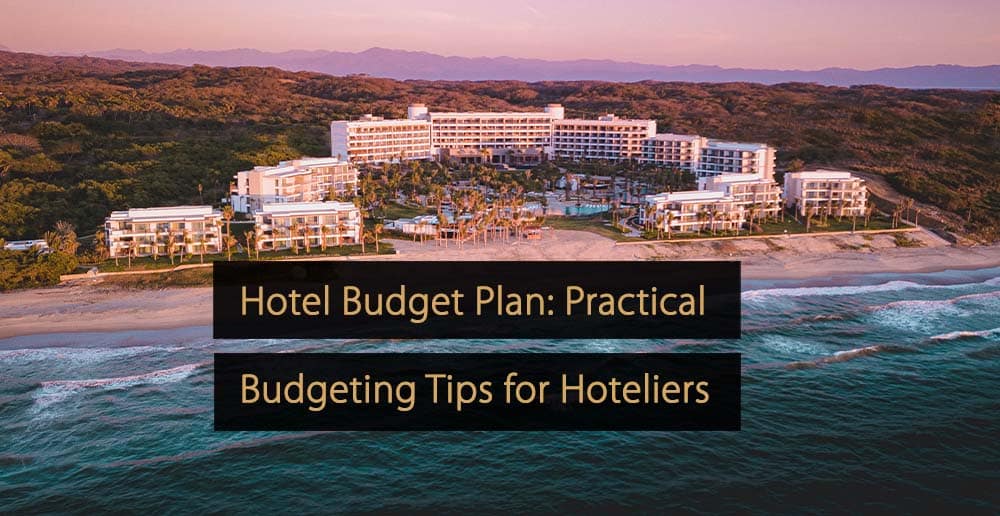
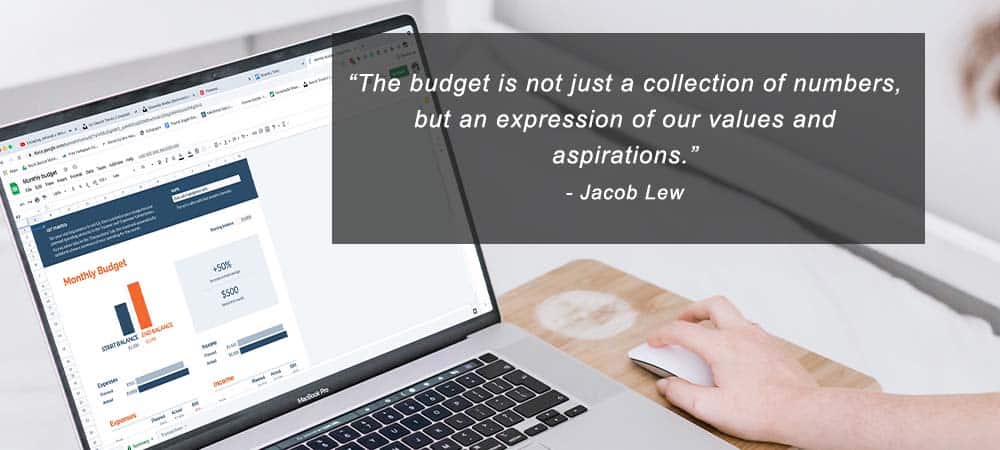


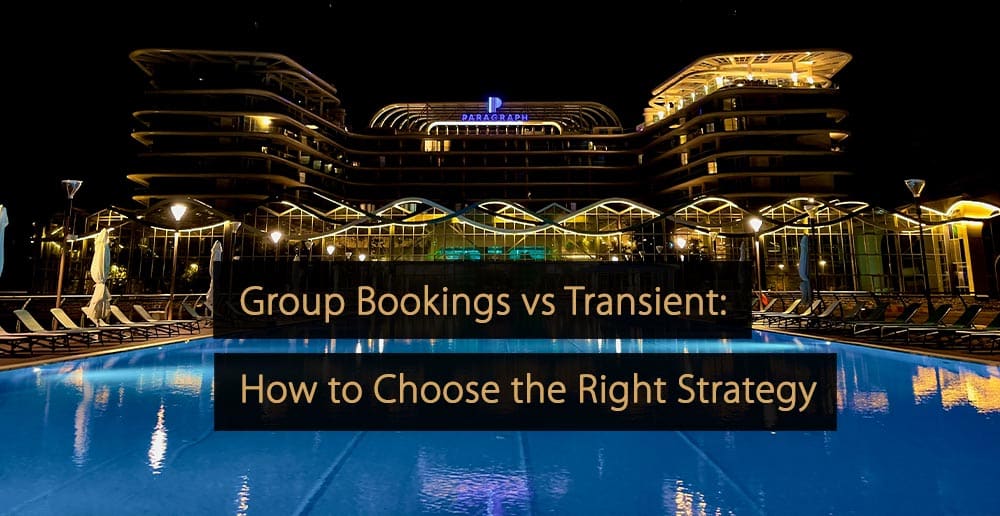
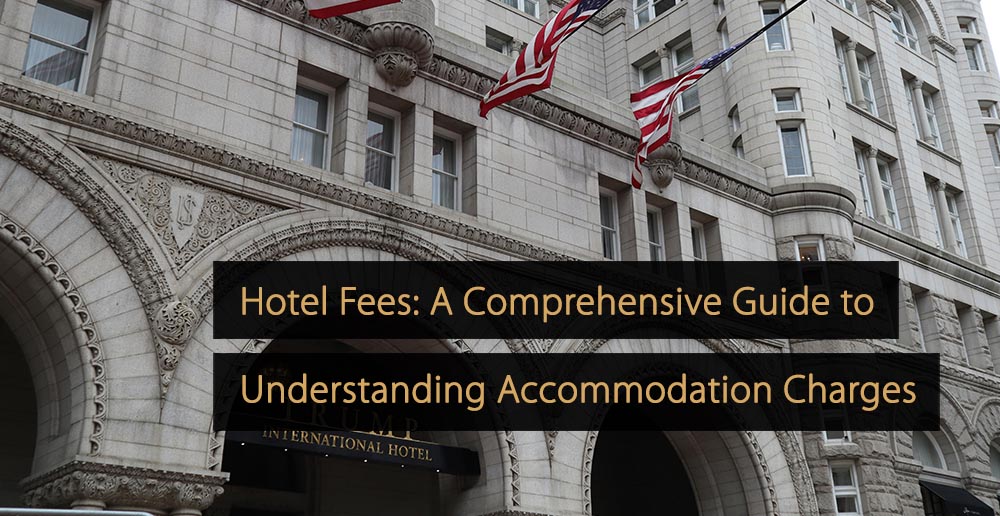
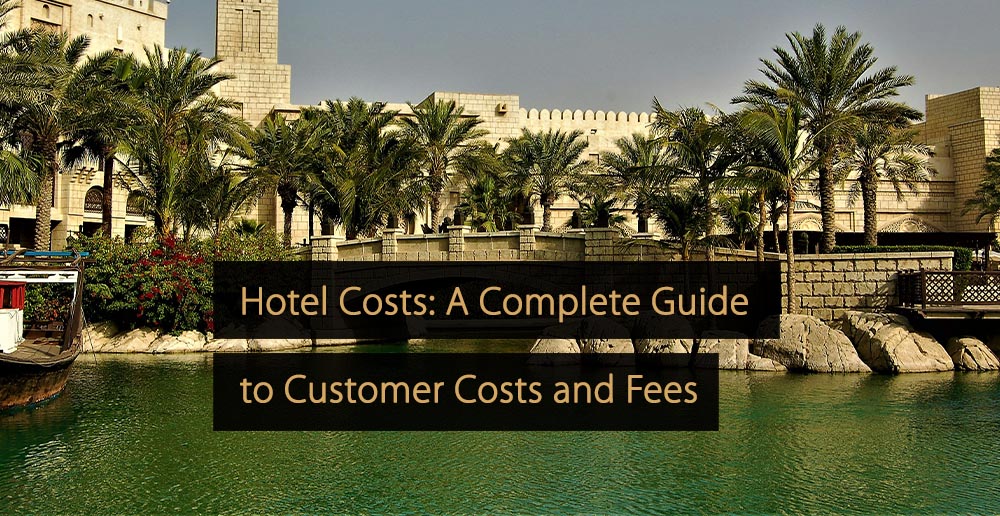
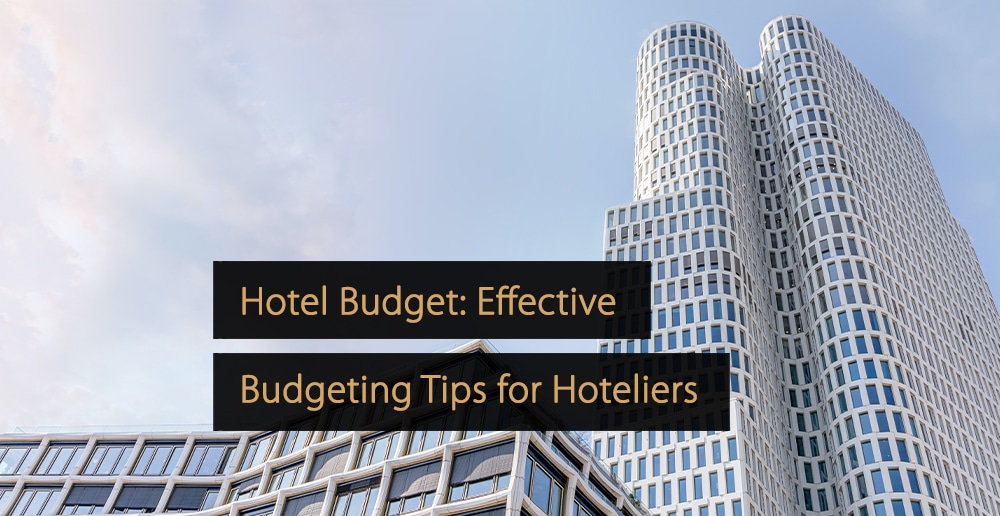

Leave A Comment